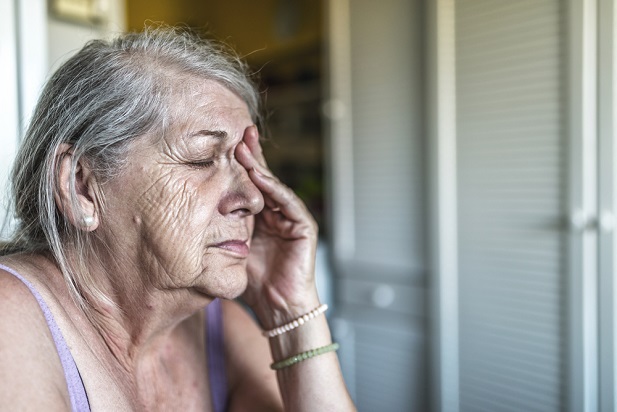 Those who start off behind the 8-ball, so to speak, are plagued by problems that range from lower incomes and unhealthy living conditions to postponed or abandoned medical care, and more.(Photo: Shutterstock)
Those who start off behind the 8-ball, so to speak, are plagued by problems that range from lower incomes and unhealthy living conditions to postponed or abandoned medical care, and more.(Photo: Shutterstock)
The older you get, the more you'll feel your economic status—whether it's good or bad. And if it's bad, it's going to get worse.
So says a book by Boston University sociologist Deborah Carr, Golden Years? Social Inequality in Later Life, which draws on multidisciplinary research on aging. Its conclusion: As people age and become more vulnerable, any economic disadvantages they face become more pronounced.
A Squared Away blog post by the Center for Retirement Research at Boston College says that the problem will become more prominent as more people age.
The people who face disadvantages earlier in life—such as issues with health, money, social and family relationships and mental well-being—“are at a big disadvantage. They have more financial problems, which creates stress, and they are more isolated and die younger.”
It's not something one can grow out of, the report says, since it begins at birth. Carr is quoted saying, “Advantage begets further advantage, and disadvantage begets further disadvantage.” She adds that for the less fortunate, “old age can be the worst of times.”
Those who have advantages, such as a college degree, a job with a good salary and health insurance that provides access to good medical care, build on those advantages to live a longer and healthier life.
And those who start off behind the 8-ball, so to speak, are plagued by problems that range from lower incomes and unhealthy living surroundings to postponed or abandoned medical care and detrimental habits such as smoking, drinking and subsisting on a poor diet.
In fact, the research indicates that such social factors account for 60 percent of premature deaths in the U.S. Social isolation, loneliness after widowhood and a lack of resources to engage in social interactions with family or friends all contribute to shorter lifespans.
But what about those who do have more resources?
According to the report, “Financially secure retirees even die better.” In a family with sufficient financial resources to allow a relative to take time off to be with a terminally ill patient, that patient was more likely to die at home instead of in an institution.
But if a caregiver can't afford to take time to be with that patient, death is more likely to occur amid the clinical trappings of a hospital or nursing home—despite the fact that most elderly people want to die at home and not among strangers.
Says the post, “[M]oney doesn't buy happiness. But it sure helps.”
READ MORE:
Gulf in retirement preparedness mirrors gulf in behaviors
© 2025 ALM Global, LLC, All Rights Reserved. Request academic re-use from www.copyright.com. All other uses, submit a request to [email protected]. For more information visit Asset & Logo Licensing.







